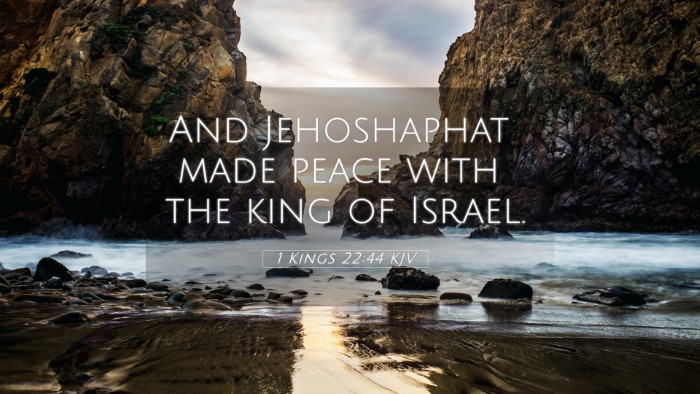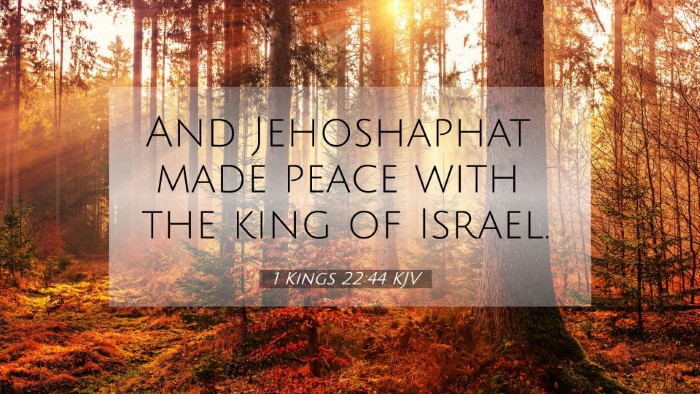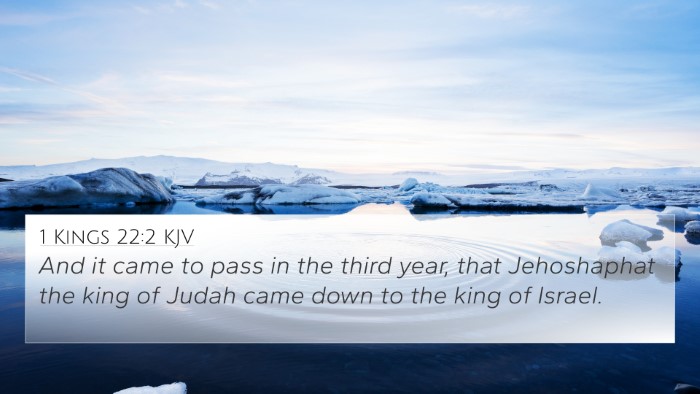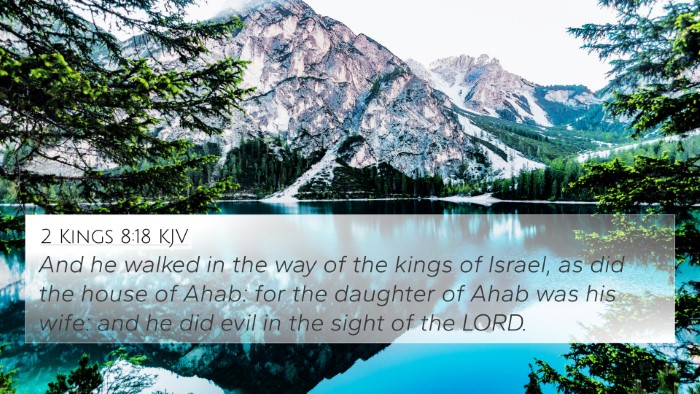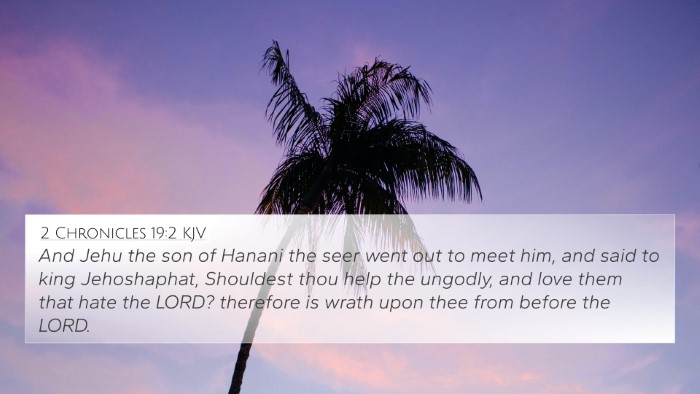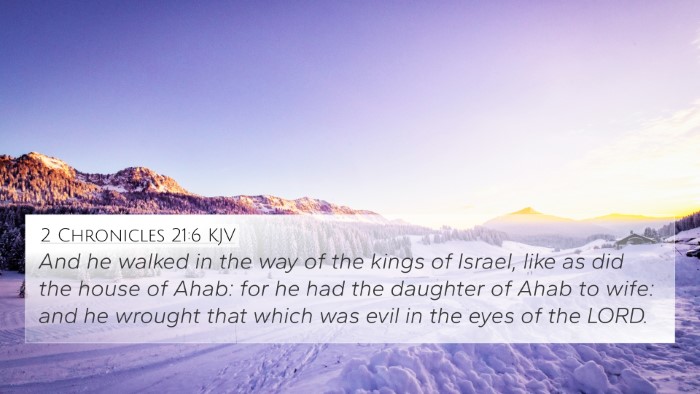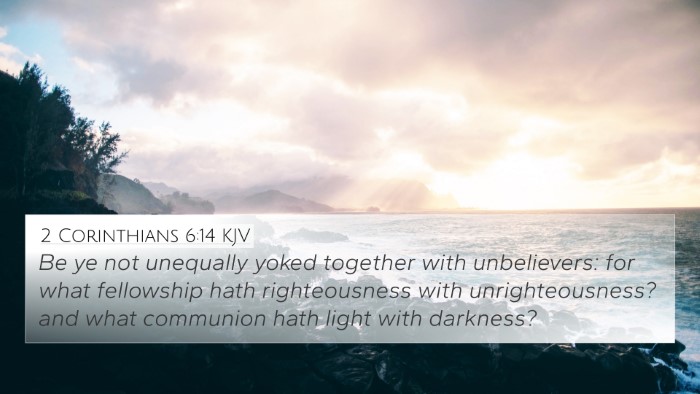Understanding 1 Kings 22:44
Bible Verse: 1 Kings 22:44 - "And Jehoshaphat made peace with the king of Israel."
This verse serves as a pivotal moment between two kings, illustrating themes of alliance, political necessity, and moral implications. Here, Jehoshaphat, a king known for his righteousness, made a significant decision to forge peace with Ahab, the king of Israel, who was not consistently in alignment with God’s will.
Meaning and Analysis
-
Historical Context:
Jehoshaphat's reign over Judah was marked by efforts to stabilize and return to God’s ways. His alliance with Ahab, a king known for idolatry, raises questions about the extent to which one should engage with those leading contrary to divine principles.
-
Commentary Insights:
Matthew Henry emphasizes that Jehoshaphat’s willingness to collaborate with Ahab, despite his failures and idolatry, was a politically pragmatic move. However, it begs the query about the moral sacrifices made for political expediency.
-
Moral Implications:
Albert Barnes suggests that this peace may not have been a godly alliance but rather a concession to human considerations. Jehoshaphat’s decision to partake in a friendship with Ahab reflects the dangers of compromising one’s spiritual integrity for political gain.
-
Theological Reflections:
Adam Clarke discusses the nature of alliances and the importance of maintaining a focus on God’s direction. The verse serves as a reminder to evaluate our associations and the spiritual implications they bear.
Cross-Referenced Scriptures
This verse connects with several other biblical texts that illustrate similar themes of alliances, peace, and moral integrity. Here are some significant cross-references:
- 2 Chronicles 18:1 - Jehoshaphat allies with Ahab, calling attention to the consequences of ungodly partnerships.
- Amos 3:3 - “Can two walk together, unless they are agreed?” highlights the importance of shared values in relationships.
- Proverbs 13:20 - “He who walks with wise men will be wise, but the companion of fools will be destroyed,” emphasizing the influence of associations.
- 2 Kings 3:7 - Chronicles another partnership with Israel that leads to significant challenges.
- 1 Corinthians 15:33 - “Do not be deceived: 'Evil company corrupts good habits',” further underscoring the consequences of bad alliances.
- 2 Chronicles 20:35-37 - Details the repercussions of Jehoshaphat’s decisions in his alliances.
- Matthew 10:34 - Jesus speaks about bringing a sword instead of peace, highlighting the complexity of relationships in faith.
Conclusion
This exploration of 1 Kings 22:44 reveals much about the interplay of politics and faith. Jehoshaphat’s peace with Ahab serves as a cautionary tale about the spiritual ramifications of alliances made outside of God’s guidance. As readers seek to understand the complexities of Biblical relationships, cross-referencing these scriptures enhances the study, providing rich connections that deepen our understanding of God's principles in governance and personal conduct.
SEO Note: For those looking to explore further, the tools for Bible cross-referencing can be immensely beneficial. Employ a Bible concordance or a Bible cross-reference guide to delve into the connections highlighted here and discover how different scriptures relate to each other.

